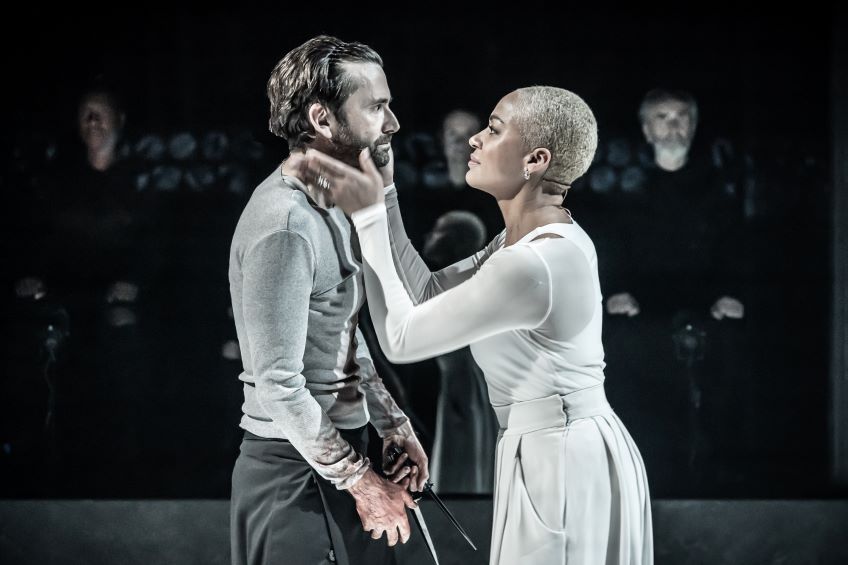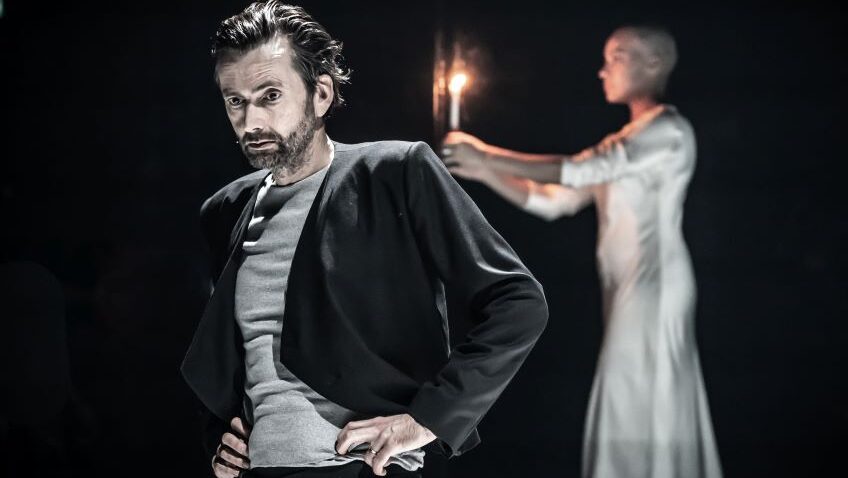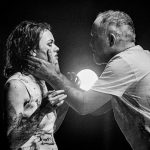Max Webster’s expressionistic production will be remembered primarily for Gareth Fry’s 3D soundscape. In order to hear what the actors are saying, the audience has to wear binaural headphones throughout. I felt I was watching a radio play.
The stage is bare and behind it is a big glass box in which cast and band sit and observe and react to what is going on. There are no props. The lighting is hazy at first. The weird witches whisper in our ears (which is weird and good) but they remain unseen (which is weird and not good). The play loses a great deal of its theatricality by their absence on stage.
King James I, Shakespeare’s patron, was also a witch killer. Macbeth had its premiere at his court in 1604. The king would have enjoyed the play because it was Scottish history and because there were witches in it. In the centuries that followed the witches would be given more songs and dances. They were one of the reasons for its popularity.
There are two essays in the printed programme. One advocates that Macbeth, after the bloody war he has just been fighting and won, is suffering from post-traumatic stress disorder. The other essay advocates that Lady Macbeth is suffering from postpartum depression, which is an interesting idea but not developed.

David Tennant, who has played Macbeth and also the Porter on radio, is very much a Scottish thane but without the eyes-blazing frenzy you might expect from his other performances. He is dressed in black kilt and boots. Everybody is dressed in black except for Lady Macbeth. Cush Jumbo wears an elegant white dress.
The supporting cast is essentially an ensemble, which diminishes their impact as individuals. The actor, who stands out most, is Jatinder Singh Randhawa and that is because he is playing the Porter, ditches the script and does an improvised stand-up comic act instead. He is funny when he is arguing with an usher about wearing headphones, but none of what he says has any relation to Shakespeare’s Porter.
Everything is stylised, including the final fighting. Played in under two hours, there is much that is cut, most notably the visible murder of Banquo, and much that is underplayed, especially when Tennant and Jumbo are not on. The Scottish reel at the coronation banquet offers a moment of jollity.
I was never emotionally involved. Max Webster’s production would have been much more involving had the headphones been used only for the witches and for Macbeth and Lady Macbeth’s interior monologues and asides.
To learn more about Robert Tanitch and his reviews, click here to go to his website. 




